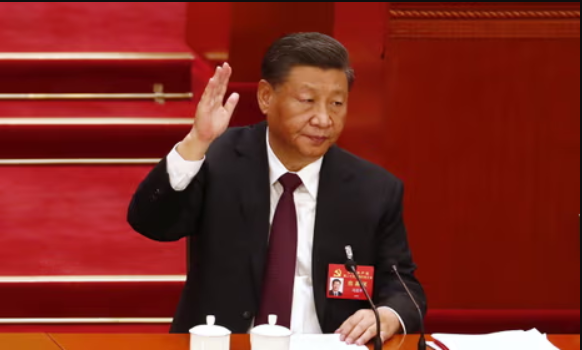China’s president, Xi Jinping, is under growing international scrutiny not only for economic tensions sparked by trade disputes with the United States, but also for his administration’s ongoing campaign against Christianity.
A new law, which came into effect on May 1, has raised concerns among international observers and faith-based organisations, as it imposes stricter controls on Christian practice and missionary work.
Jeff King, President of International Christian Concern (ICC), described the law as a pattern of repression under Xi’s leadership. “It makes life tougher for those trying to spread the faith in China,” King said. “But no matter what he does, the church grows and is triumphant. It’s an incredible story.”
Despite intensifying surveillance and the threat of arrest, many missionaries continue to operate quietly, often under the radar. “Most won’t leave until they’re caught and thrown out,” King added.
Recent developments point to an escalation of state-sponsored intimidation. In Henan Province, local authorities are now offering monetary rewards for information about gatherings at unregistered house churches.
“This is part of how communism destroys culture,” said King. “When you turn citizens against each other, you breed paranoia. But it’s in the dark that the church grows strongest.”
Church leaders who have experienced past waves of persecution remain cautious about times of relative openness. Recalling a past visit to China, King said veteran pastors who had survived decades in prison expressed concern that newer leaders were not facing the same level of spiritual testing. “They worried their protégés weren’t being hunted, tortured, or imprisoned like they were. That speaks volumes about how persecution shapes faith.”
The Chinese Communist Party (CCP) has long promoted the Three-Self Patriotic Movement (TSPM) as the official channel for Protestant worship. However, critics argue the state-run church serves primarily as a mechanism of control. “It’s an ideological vehicle,” King noted. “In many churches, you’ll find Xi Jinping’s portrait on the wall and his writings distributed as doctrine. The underground church rejects that.”
Observers warn that the campaign to “sinicize” Christianity by presenting a version of the faith that is aligned with socialist values and nationalistic messaging, is part of an attempt to erase religious independence. New regulations have banned the religious education of minors, severed ties between local churches and foreign Christian organisations, and tightly monitored believers through high-tech surveillance.
“China is where big brother meets big data,” a Beijing pastor once remarked. Phones, speech, and even social media activity feed into a social credit system that penalizes dissent. Those who resist the state’s control risk imprisonment, harassment, or even forced disappearance.
The situation has worsened in recent years. Churches have been demolished, congregations disbanded, and Christian literature removed from stores and online platforms. A notable incident involved the forcible demolition of a church in Zhejiang Province, where SWAT teams confronted Christians trying to protect their place of worship.
Other cases include the raid and banning of Zhongxing Christian Church in Zhengzhou, where authorities destroyed personal property and stole members’ belongings. Dozens of church leaders and laypeople have been arrested on charges such as “illegal business operations,” often for distributing Bibles or holding unregistered gatherings.
Despite the crackdowns, King insists the church in China is far from defeated. “Persecution always backfires. It spreads the Gospel. As things get harder for the people, especially now with economic challenges and factory closures due to U.S. tariffs, hearts are becoming more open.”
He pointed to the unrest sweeping across parts of the country, particularly among students demanding political reform. “People are hurting. They’re looking for meaning, for hope. And that creates an opportunity. Amid pressure, the church can speak to people’s deepest needs.”


